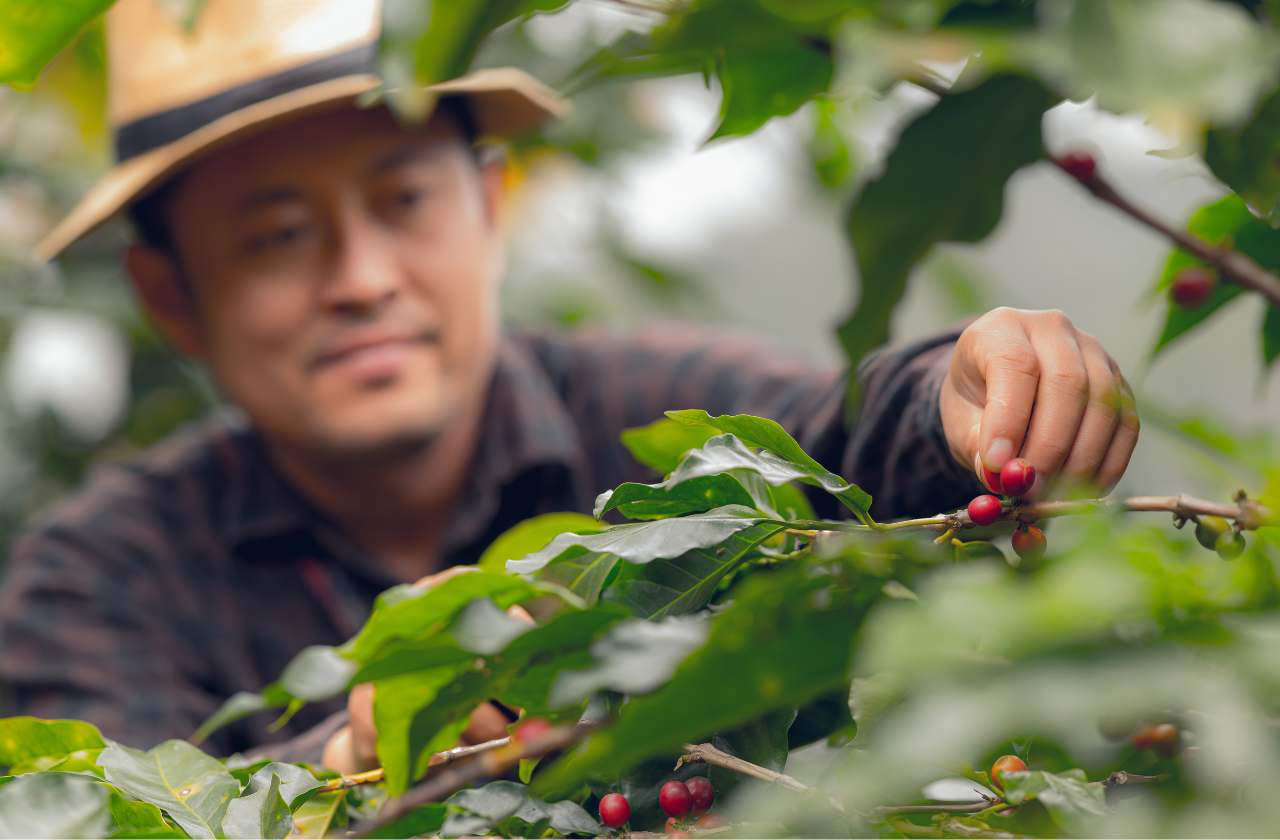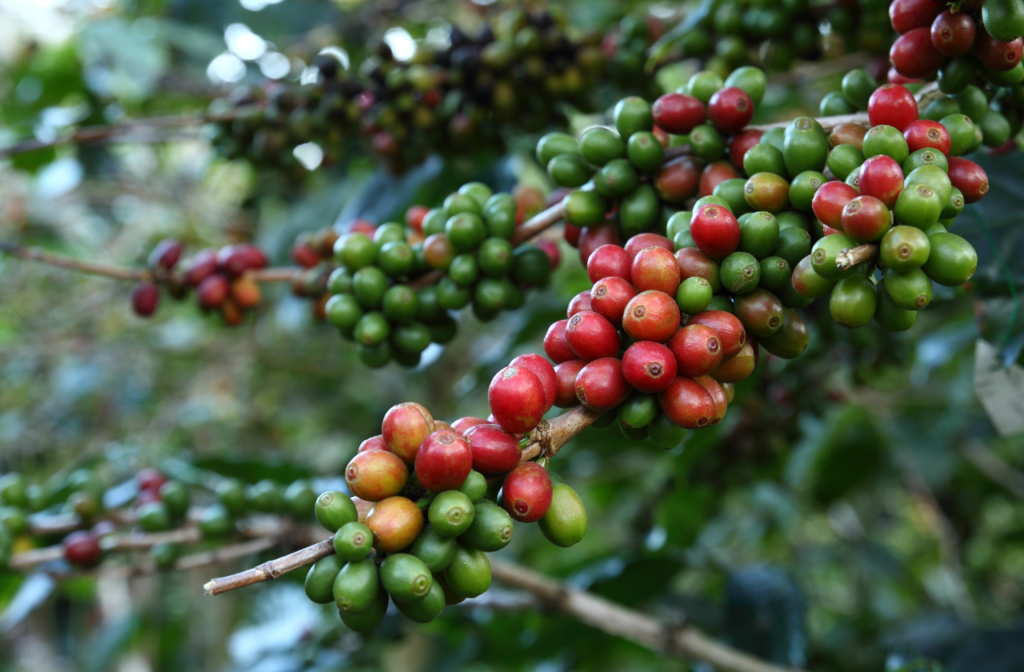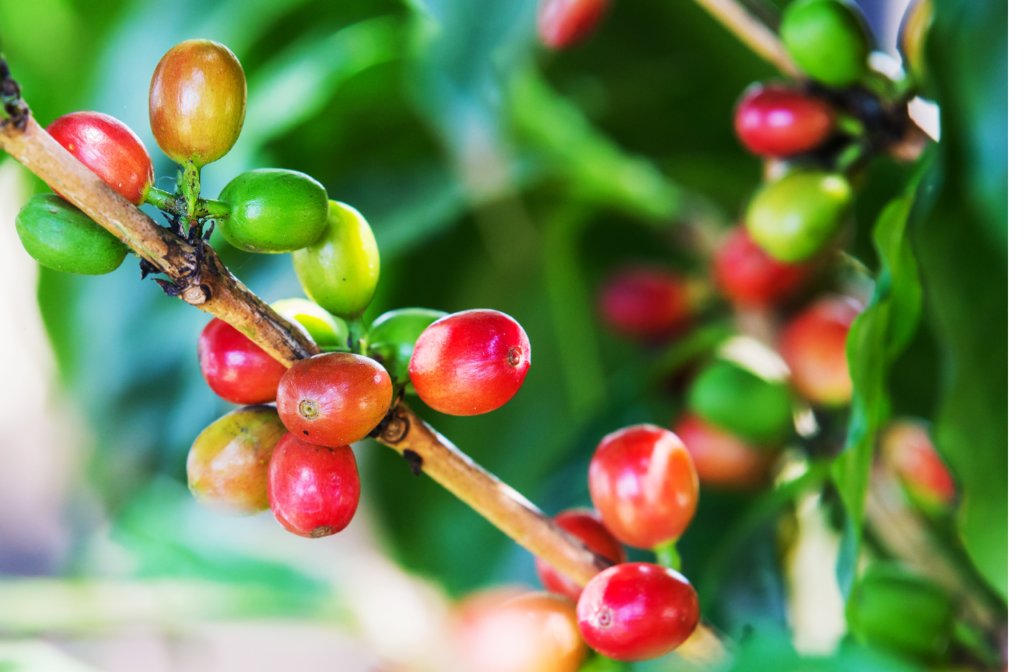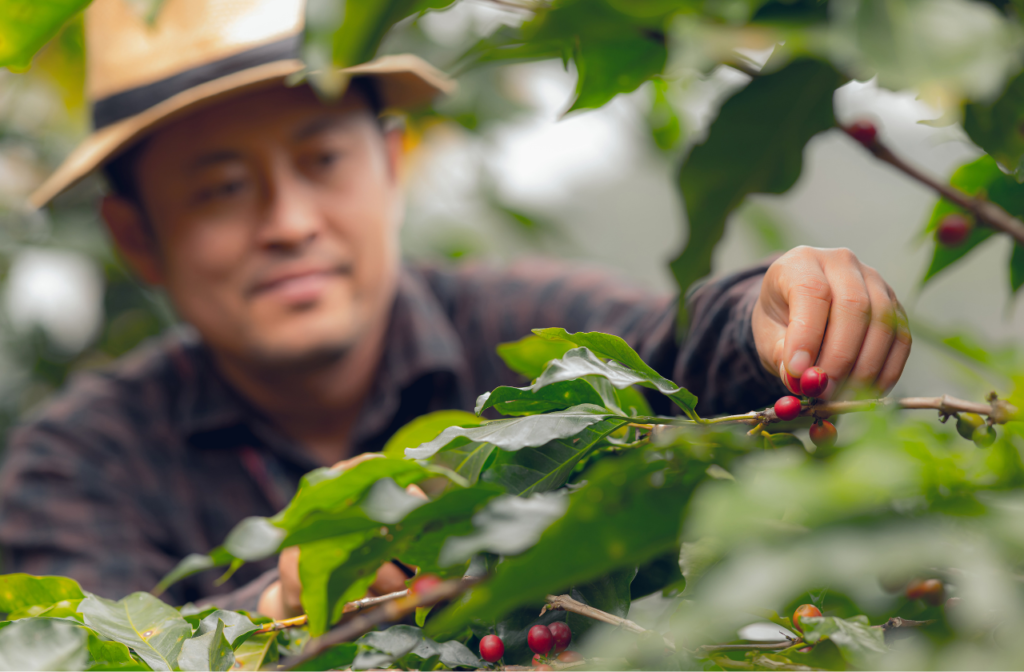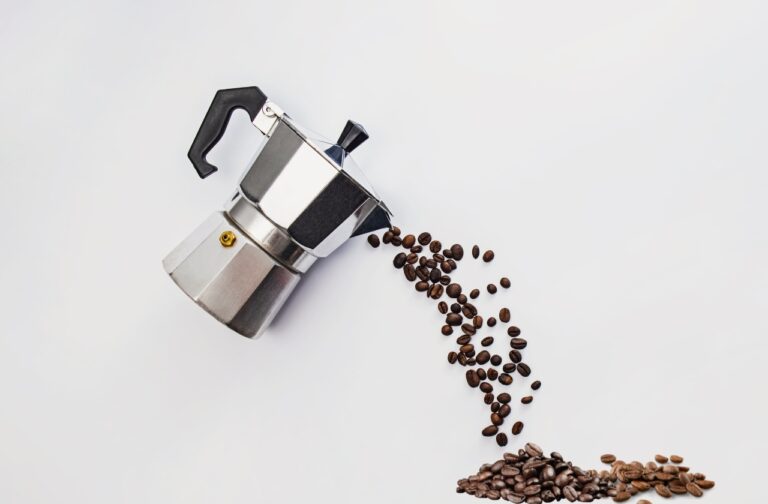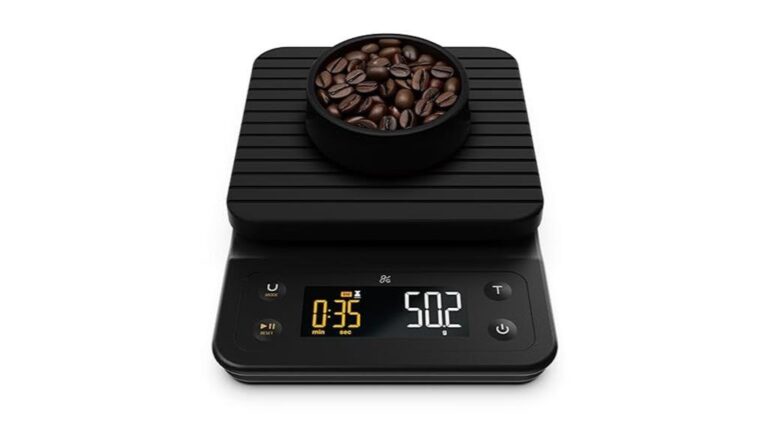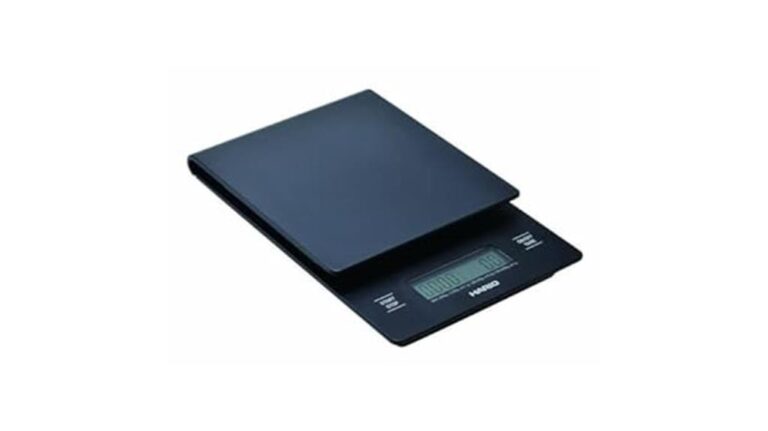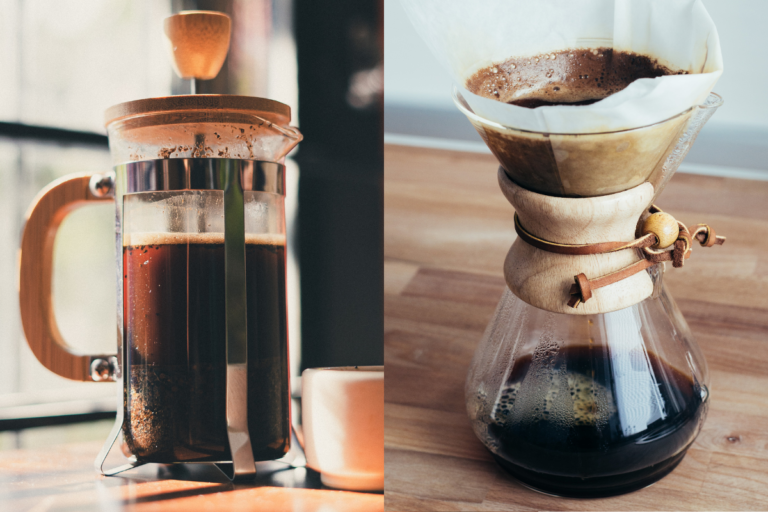Exploring Coffee Bean Flavor Profiles: A Comprehensive Guide
Not all coffee drinkers realize that different species of coffee beans have different flavor profiles. If you are interested in the different types of coffee beans available, and if you want to know which beans are best for you, you will need a guide to help you navigate this confusing world of coffee varieties.
- Arabica: Complex, fruity, bright.
- Robusta: Bold, earthy, low acidity.
- Excelsa: Exotic, bright, medium body.
- Liberica: Bold, woody, low acidity.
- Specialty: Diverse, balanced, premium experience.
Here, we provide a quick guide on the flavor profiles and tasting notes of Arabica, Robusta, Excelsa, and Liberica coffee bean species, as well as what to look for in the flavors of Specialty coffee beans, exploring the unique characteristics that define each bean variety.
Weird Coffee Tip: Coffee beans form an integral aspect of many cultures and societies throughout the world. If you want to learn more about how coffee influences international culture, take a look at this article:
Why Coffee Holds a Special Place in Cultures Worldwide
Arabica Beans
Arabica coffee beans are known for their diverse and complex flavor profile, which is highly influenced by factors such as the growing region, altitude, climate, soil, and processing methods.
Here are some key characteristics that are often associated with Arabica coffee beans:
Acidity: Arabica beans are renowned for their bright and lively acidity, which can range from mild to pronounced. This acidity is often described as vibrant and can have fruity or floral undertones. It adds a pleasant, tangy quality to the coffee’s flavor.
Body: Arabica coffee typically has a lighter to medium body compared to other coffee varieties like Robusta. The body refers to the thickness or mouthfeel of the coffee, and Arabica beans tend to offer a smoother and silkier texture.
Aroma: Arabica coffee is celebrated for its aromatic complexity. Depending on the region and variety, you may encounter fragrances of flowers, fruits, spices, or even nutty and chocolatey notes. The aroma is an essential part of the overall coffee experience.
Sweetness: Arabica beans often possess a natural sweetness that can range from mild to pronounced. This sweetness can be reminiscent of sugar, caramel, or various fruits, contributing to a pleasant and balanced taste.
Flavor: The flavor of Arabica coffee is incredibly diverse and can vary significantly from one origin to another. Common flavor notes include fruity tones such as citrus, berry, apple, or tropical fruits, as well as floral, herbal, and nutty hints. Some coffees may also exhibit chocolate, caramel, or spicy undertones.
Complexity: Arabica beans are known for their complexity, with multiple layers of flavor that can evolve as the coffee cools. This complexity makes them a favorite among coffee enthusiasts who appreciate the nuanced and intricate flavors in their brew.
Balance: Arabica coffee is often characterized by a well-balanced taste profile, with acidity, sweetness, and bitterness harmoniously integrated. The balance contributes to a pleasant and enjoyable cup of coffee.
Clean Finish: Arabica beans tend to have a clean and crisp finish, which means that the aftertaste is generally pleasant and doesn’t linger with unpleasant or astringent notes.
It’s important to note that the specific flavor profile of Arabica coffee can vary widely based on where it’s grown. Coffee from different regions, such as Ethiopia, Colombia, Kenya, or Brazil, can exhibit unique flavor characteristics due to their distinct terroirs and processing methods.
Additionally, the roast level plays a significant role in shaping the flavor profile, with lighter roasts preserving more of the bean’s inherent qualities, while darker roasts can introduce roast-related flavors like smokiness and bitterness.
Robusta Beans
Robusta coffee beans have their own distinct flavor profile, which sets them apart from Arabica beans. Here’s a description of the flavor profile of Robusta coffee beans:
Acidity: Robusta coffee beans generally have lower acidity compared to Arabica beans. The acidity in Robusta is often described as sharp and less vibrant. It tends to be more earthy or woody rather than fruity or floral.
Body: Robusta coffee is known for its full-bodied and thick texture. It has a heavier mouthfeel and can sometimes be described as slightly astringent or rubbery, especially when over-roasted.
Aroma: Robusta coffee typically has a simpler aroma compared to Arabica. It may exhibit nutty, woody, or earthy scents, with fewer floral or fruity notes. The aroma is less complex but can still be pleasant.
Sweetness: Robusta beans generally have less natural sweetness compared to Arabica. Instead, they may have a bitter or slightly astringent edge, which some people find less appealing.
Flavor: Robusta coffee is known for its strong, bold, and sometimes harsh flavor. Common flavor notes include earthiness, nuttiness, and a noticeable bitterness. Robusta beans can also have woody or smoky undertones. The flavor profile is often described as less nuanced and complex than Arabica.
Balance: The balance in Robusta coffee leans more towards bitterness and less toward sweetness and acidity. It can be an acquired taste for those who prefer a more intense and bitter coffee experience.
Finish: Robusta beans can have a lingering bitterness or astringency in the finish, which some coffee drinkers appreciate for its boldness.
It’s important to note that Robusta coffee is often used in espresso blends to provide crema and a strong, robust flavor. It is also known for its higher caffeine content, which contributes to its bitter and bold characteristics.
Just like with Arabica coffee, the specific flavor profile of Robusta can vary based on factors such as growing region and processing methods. Additionally, the roast level can significantly impact the flavor, with darker roasts emphasizing the bitterness and smoky notes associated with Robusta beans.
Excelsa Beans
Excelsa coffee beans have a unique and distinctive flavor profile that sets them apart from both Arabica and Robusta coffee beans. Here’s a description of the flavor profile of Excelsa coffee beans:
Acidity: Excelsa coffee beans are known for their pronounced and tart acidity. This acidity is often described as bright, sharp, and sometimes fruity. It can be reminiscent of tart fruits like cherry or grapefruit.
Body: Excelsa coffee typically offers a medium to full body. It has a pleasing and balanced mouthfeel that falls between the lighter body of Arabica and the heavier body of Robusta.
Aroma: The aroma of Excelsa coffee can vary but often includes fruity and floral notes. It may also have herbal or spicy undertones, contributing to a complex aromatic profile.
Sweetness: Excelsa beans can have a natural sweetness, but it is often accompanied by a tartness or sourness. The combination of sweetness and acidity can create a unique and intriguing flavor experience.
Flavor: Excelsa coffee is celebrated for its unusual and exotic flavor profile. It is known for its wild and complex flavors, which can include fruity, floral, and herbal notes. Some describe it as having a somewhat “wild” or “forest-like” taste with a hint of earthiness.
Balance: The balance in Excelsa coffee is often tilted more towards acidity and tartness. While it can have some sweetness, the pronounced acidity is a defining characteristic.
Finish: The finish of Excelsa coffee can be clean, with the tartness and acidity lingering in a refreshing way. It leaves a memorable aftertaste that sets it apart from other coffee varieties.
It’s important to note that Excelsa coffee beans are relatively less common than Arabica and Robusta, and they are primarily grown in certain regions, including West Africa and Southeast Asia.
The unique flavor profile of Excelsa makes it a sought-after choice for specialty coffee blends, where it can add complexity and intrigue to the overall flavor.
The specific flavor attributes of Excelsa coffee can still vary depending on factors such as growing conditions, processing methods, and roast levels. As with any coffee variety, the roasting process can accentuate or mute certain flavor characteristics, so the roast level chosen by the roaster will also influence the final taste of the coffee.
Liberica Beans
Liberica coffee beans, often referred to as Coffea liberica, have their own unique flavor profile distinct from Arabica, Robusta, and Excelsa coffee beans. Here’s a description of the flavor profile of Liberica coffee beans:
Acidity: Liberica coffee is known for its low acidity, making it markedly different from Arabica beans. The acidity in Liberica is often very mild, if present at all. This results in a relatively flat and less bright taste compared to other coffee varieties.
Body: Liberica coffee generally offers a full-bodied experience. It has a heavy and robust mouthfeel that can be described as thick and sometimes even syrupy.
Aroma: The aroma of Liberica coffee can vary but often includes earthy and woody notes. It may have smoky, nutty, or spicy undertones, contributing to a somewhat rustic and bold aromatic profile.
Sweetness: Liberica beans can have a mild sweetness, but it is typically less pronounced than in Arabica coffee. The sweetness in Liberica is often overshadowed by its strong and bold flavor characteristics.
Flavor: Liberica coffee is renowned for its bold and distinct flavor. It is known for its pronounced woody and earthy notes, which can sometimes be described as woody, smoky, or even leathery. Some Liberica coffees may exhibit herbal or spicy flavors as well.
Balance: The balance in Liberica coffee is often tilted towards a strong, intense flavor with low acidity and less sweetness. It is characterized by its boldness and robustness.
Finish: The finish of Liberica coffee can be long-lasting, with the bold and earthy flavors lingering on the palate. It often leaves a memorable aftertaste that distinguishes it from other coffee varieties.
Liberica coffee beans are less commonly found and are primarily grown in regions of West and Central Africa, as well as parts of Southeast Asia. Due to their bold and unique flavor profile, Liberica beans are sometimes used in blends to add depth and character to the overall coffee taste.
It’s important to note that Liberica coffee has a relatively niche market, and its distinct flavor may not be preferred by everyone. Like other coffee varieties, the roast level can also impact the flavor of Liberica beans, with darker roasts intensifying the earthy and smoky characteristics.
Specialty Coffee Beans
Specialty coffee beans refer to a category of high-quality coffee that is distinct from mass-produced, commodity-grade coffee. These beans are carefully cultivated, processed, and roasted to emphasize their unique flavor characteristics.
Here’s a description of the flavor profile of specialty coffee beans, along with what to look for in their flavor profiles:
Flavor Profile of Specialty Coffee Beans
Acidity: Specialty coffee beans often exhibit a well-balanced and pronounced acidity. The acidity can be vibrant and lively, with a range of flavors, including citrus, fruity, floral, or even wine-like notes. It adds brightness and complexity to the coffee’s taste.
Body: Specialty coffee typically offers a pleasant and well-rounded body. The body can range from light to medium or even full, depending on the coffee’s origin and processing. A balanced body contributes to a satisfying mouthfeel.
Aroma: The aroma of specialty coffee is complex and inviting. It can encompass a wide array of fragrances, such as floral, fruity, spicy, nutty, or chocolatey notes. The aroma plays a crucial role in enhancing the overall coffee experience.
Sweetness: Specialty coffee is known for its natural sweetness. This sweetness can manifest as sugar, caramel, honey, or various fruit-like sweetness, creating a delightful and harmonious flavor profile.
Flavor: Specialty coffee beans offer a diverse range of flavors that reflect their unique terroirs. These can include fruity notes like berries, stone fruits, or tropical fruits, as well as floral, herbal, nutty, and chocolatey hints. The flavors are often intricate and well-defined.
Balance: Balance is a key characteristic of specialty coffee. It refers to the harmonious integration of acidity, sweetness, and bitterness. A well-balanced coffee provides a coherent and enjoyable taste experience.
Finish: Specialty coffee typically has a clean and pleasant finish. The aftertaste can be long-lasting, with the coffee’s flavors lingering on the palate in a way that leaves a positive impression.
What to Look for in the Flavor Profiles of Good Specialty Coffee Beans
When seeking out good specialty coffee beans, consider the following factors in their flavor profiles:
Origin: Different coffee-growing regions produce distinct flavor profiles. Explore coffees from various origins to experience the unique tastes associated with each region.
Processing Method: The processing method, whether it’s washed, natural, or honey-processed, can significantly affect flavor. Look for beans processed in ways that highlight the desired flavor characteristics.
Roast Level: Pay attention to the roast level. Lighter roasts tend to preserve more of the bean’s inherent flavors, while darker roasts may introduce roast-related notes. Choose a roast level that aligns with your flavor preferences.
Freshness: Freshness is crucial for specialty coffee. Look for beans that have been roasted relatively recently, as coffee flavor deteriorates over time.
Tasting Notes: Specialty coffee often comes with detailed tasting notes provided by the roaster. These notes can help you identify the specific flavors and characteristics you’re looking for in a coffee.
Single Origin vs. Blend: Consider whether you want a single-origin coffee that highlights the unique qualities of a specific region or a well-crafted blend that balances different beans for a complex flavor profile.
Overall, exploring the world of specialty coffee can be a rewarding journey, as it offers a wide range of flavor experiences, and there’s something to suit every coffee enthusiast’s palate.
Frequently Asked Questions
How Can I Determine the Quality of the Coffee Beans I Am Purchasing?
Determining the quality of coffee beans involves evaluating their freshness and overall characteristics. Factors to consider include aroma, texture, bean size, and origin. Expert knowledge and experience are crucial for accurate assessment.
Are There Any Health Benefits Associated With Consuming Different Types of Coffee Beans?
Different types of coffee beans have varying nutritional values and can have an impact on mental health. It is important to consider the specific health benefits associated with each type when choosing which coffee beans to consume.
What Are Some Common Mistakes People Make When Brewing Coffee From Different Types of Beans?
When brewing coffee from different types of beans, common mistakes include using the wrong grind size, improper water temperature, incorrect brewing time, and neglecting to clean the equipment regularly. Mastering brewing techniques can enhance the flavor profiles of different coffee beans.
Can the Flavor Profile of Coffee Beans Vary Based on the Geographical Region They Are Grown In?
Yes, the flavor profile of coffee beans can vary based on the geographical region in which they are grown. Geographical factors such as soil composition and climate have a significant influence on the taste and aroma of coffee.
Are There Any Specific Brewing Techniques That Work Best for Each Type of Coffee Bean?
When it comes to brewing coffee, different techniques can enhance the flavor variations of each type of coffee bean. Understanding the specific brewing techniques that work best for each bean can result in a more enjoyable and satisfying coffee experience.
Conclusion
Understanding the different flavor profiles of coffee beans is crucial for coffee enthusiasts and professionals alike. Arabica beans are known for their delicate and nuanced flavors, while Robusta beans offer a more robust and bitter taste.
Excelsa beans present a unique combination of fruity and tart flavors, while Liberica beans provide a distinctive woody and smoky taste. Specialty coffee beans offer a wide range of flavors and are highly sought after for their exceptional quality. Exploring these flavor profiles allows for a more enjoyable and informed coffee experience.
-
Espresso Express eBook
R180,00 -
From Bean To Brew eBook
R450,00 -
Great Coffee, Made Simple
R0,00
